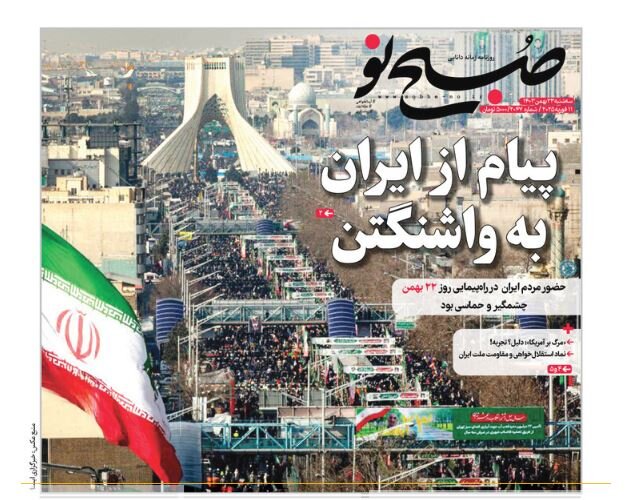Intelligent leadership a key factor in overcoming crises

TEHRAN - Sobh-e-No interviewed Masoud Rezaei, a history researcher, about the secret of the Islamic Revolution’s longevity.
He said: Today, our enemies are trying to create a distance between the people and the Leader through various methods. One of the main goals of the United States and its allies in imposing the most severe sanctions against Iran is to increase economic pressure on the people and create grounds for unrest and tension in society so that a distance can be formed between the people and the government. This can lead to irreparable losses. The Islamic Revolution, despite all the hostility and limitations, has continued and achieved progress that has astonished the world and angered the United States and its allies. Therefore, we must continue this path with vigilance. Paying attention to the Leader’s guidelines and maintaining the spirit of resistance will ensure the sustainability of the revolution and the country. We must rely on our domestic forces, develop domestic talents, and continue the path of progress by relying on God to reach higher peaks.
Shargh: Change of tone and language or change of policy?!
Shargh discussed Trump's latest remarks about Iran in an interview with international analyst Vahid Bayani. He said: Donald Trump's statements were in a warning tone, but with measured and precise words. Trump said that he has great respect for Iran and is seeking to take the initiative to contact the President of Iran. However, after signing the directive to revive the maximum pressure campaign and taking steps to tighten oil sanctions on Iran, Donald Trump's tone and language will gradually become sharper and tougher. Another important point is Trump's threat regarding a military attack on Iran. Donald Trump is pursuing confrontation or military options indirectly and through the Israelis. This means that the U.S. President is not interested in a military confrontation between Tehran and Washington, and if necessary, the responsibility for the attack will be assigned to Netanyahu and the Israelis. Donald Trump is seeking diplomacy combined with pressure, engagement with maximum sanctions, negotiation from a superior position, and ultimately reaching an agreement that would include the most points for Washington and the least for Tehran.
Etemad: Regional and global competitors
In a note, Etemad discussed Trump's Middle East policy. The paper said: Iran is not the only threat to the United States in the Middle East. China and Russia have extensive interests and influence in West Asia. The reconciliation between Iran and Saudi Arabia hosted and mediated by China is considered an extremely undesirable event for the strategic interests of the West. China has achieved the highest level of influence in the Middle East in the past 4 years. Russia has also been able to establish friendly relations with America's partners. A simple calculation shows that although America's clear focus is on Iran, the Easterners have also united with the Arab friends of America. Beyond the situation mentioned, the strategic alliance between Iran and Russia or the combination of Iran with China in a situation where the Eastern bloc comrades are officially pursuing the "coalition of the deconstruction" is a growing threat to the United States.
Hamshahri: Will India choose Tehran or Washington?
In an analysis of the fate of Chabahar Port and engagement with India, Hamshahri wrote: The Trump administration has decided to revoke the sanctions exemption previously granted to India for developing Chabahar Port in southern Iran. For India, this decision is more than a policy adjustment. It is a geopolitical earthquake. The absence of India in Chabahar could pave the way for greater Chinese involvement; a move that would run counter to Washington’s own strategic goals. While the U.S. may achieve short-term gains in isolating Iran, it is alienating key partners like India and undermining regional stability. For India, the path forward requires diplomatic agility and strategic foresight. New Delhi must recalibrate its approach and balance its relations with Washington and Tehran while protecting its regional interests. Chabahar is ultimately more than a port. It is a symbol of India’s aspirations for connectivity and influence in a region fraught with challenges.
